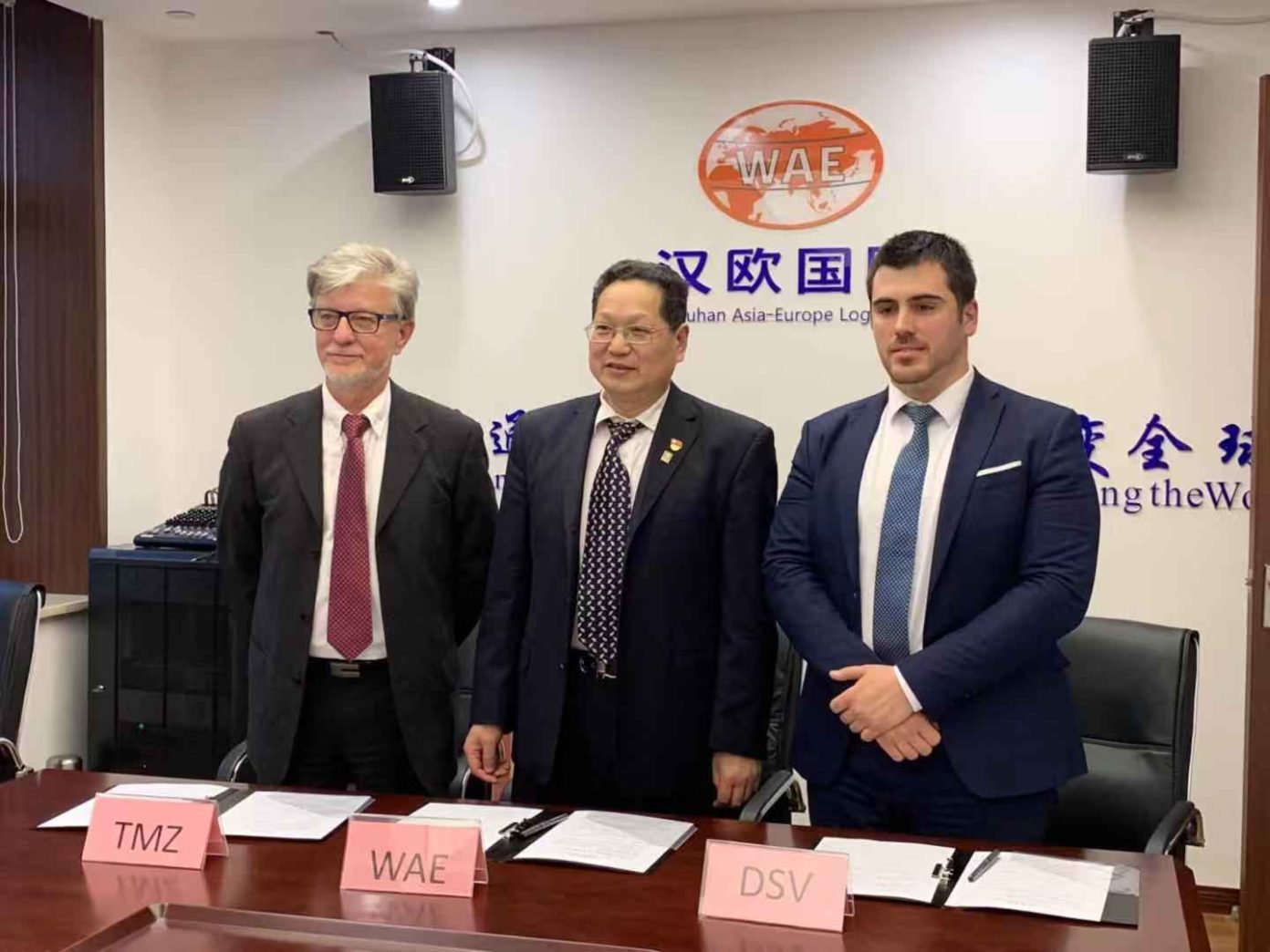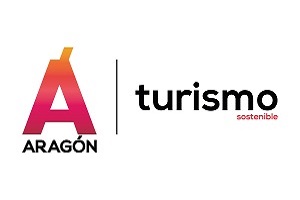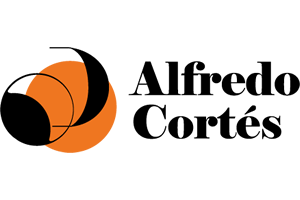Jorge Valera is responsible for Traffic with China for the Danish multinational DSV Air & Sea. This Aragonese has been one of the people responsible for starting the train connection between Zaragoza and China through the Zaragoza Maritime Terminal.
How did your passion for China begin?
I liked to read a lot about the USSR, I wanted to go to Russia, but it was not possible. I went to China for the first time when I was 18 years old to work as a freelance looking for products in China to sell them in Spain. My uncle had a trading company, importing products into China. As I was in his office and it was the time when China was starting to make web pages to make their products, and in a relatively easy way you could contact the companies to get their products, I said, why don’t I go and talk directly with the factories? I went to Foshan in southern China. It is a very well known city because it is the main manufacturer in China for ceramics, bathrooms, faucets and furniture. I first started for the dental industry, which was where my uncle worked. Very quickly I got into the construction sector linked to these products, which at that time was the boom, it was just before the crisis.
Is that why you came back to Spain?
No, because I signed up for Business Studies at the University of Zaragoza. I was combining it with product research in China. At our university there were several companies with which we could do internships, but only two that could send me to China: Imaginarium, which rejected me in the interview I did because of my level of English; and Pikolin, where they told me that they didn’t have anyone related to purchasing in the department. I chased the HR manager to the job fairs. At the second job fair I got him to put me in an internship position and then I got my head in the door.
How was your job at Pikolin?
I spent three or four months there, dealing with the products they imported from China, customs and then I started to review invoices and negotiate with freight forwarders, which is what I do now. One day, the general manager of one of these forwarding companies in Valencia told me that he wanted to see my boss in Zaragoza, but he could not attend him and sent me to the meeting. Just before the meeting he told me that they were going to close the China office and that he was sorry because he knew that I had gone there to go to China.
How did that meeting go then?
When I gave him the business card I gave it to him as they do in China and he said: “Have you been to China? When I said yes, he told me that they were looking for someone to go to China. At that moment I told him that they had just told me that they were closing the China office. The general manager of Transped, as the company was called, told me if I could start the following week. I spent six months in Valencia and from there I went to China and spent almost 10 years.
What was your role at Transped?
I was in Xiamen to develop business with Spain and Latin America and focused on maritime. While in China I moved to DSV, a Danish company. I have been there for 10 years and have held 9 different positions. I was first involved in Spain-Latin America trade relations, then in perishable food, and then in airfreight, which was what I liked the most. I was the head of DSV’s negotiations in China for merchandise. I specialized in China’s secondary airports, which is what Zaragoza would be like here in Spain. In the smaller cities, with secondary airports, they are cities where the train also stops. That’s when I started to learn about train logistics. They are cities that have grown logistically.
Why are you coming back to Spain for good?
I left China 5 years ago because of a pneumonia that left me very touched. I am the number one fan of Zaragoza and when I saw this city again, I stayed here and recovered tremendously fast. I continued working for DSV from here, started to develop the China-Spain part and soon got into rail logistics. I saw that the connections between these two countries were very weak and we worked to bring the first trains from China to Spain.

How did the first trains arrive in Zaragoza?
In China I worked a lot with Germany and Poland, but those trains did not come down from China to Spain. When I came back to Spain, we worked on this connection and, as I am so “maño”, instead of bringing them to Madrid and Barcelona, I took them to Zaragoza. We started a very good relationship with TMZ, a relationship that is very good today. We made the first consolidations, a container where we put cargo from many customers. In 2017, Mayor Pedro Santisteve and Councilor Marta Gastón went to TMZ to see the consolidated products that had arrived from China, and in 2018 we did the same again for the first export train from Zaragoza-China, which arrived in a very remote city in China, Hami.
You also got to travel to Wuhan with a project with the city of Zaragoza.
In 2019 we traveled to Wuhan with the mayor to China to develop the air and train connection between China and Zaragoza. It was a very cool event, we signed an agreement with the mayor of Wuhan to set up planes and trains with the city. We started to make containers and some were sent by plane, but with the train we did not manage to make routes. Six months later the covid arrived.

What kind of companies use this connection?
Mainly automotive and textile.
In 2020 DSV was in charge of managing the vast majority of the masks that were imported from China to Spain, including the import of sanitary equipment for the Spanish Ministry. How was that job?
Horrible. It was the greatest work pressure I have ever had in my life, as well as that of my boss and all my colleagues. We didn’t rest a day, we worked from 5 a.m. to 11 p.m. We took turns to sleep. We took turns to sleep, China changed the rules every week… We moved more than 100 planes and 7 or 8 trains. You have to take into account that 40 containers fit on a train and 9 on a big plane. One of the trains we loaded is being registered for the Guinness World Records. It traveled 14,133 kilometers by train to Madrid with almost 60 million masks.
The management of the import from China was highly criticized.
There were reports that the product did not arrive properly, but what I saw in other countries was the same or much worse. Spain was one of the countries that started supplying the product the fastest, no matter how much they say. The management of the Ministry of Health did not seem bad to me, it was well managed and it managed to supply enough in relation to other countries.
You also brought masks for the Zaragoza City Council.
There was an order we brought to the Zaragoza City Council. I have to say that Azcón knows about business and called me personally by phone to manage the issue of the masks. He invited me to the office to chat about China, how Zaragoza can have more presence, etc. …
What plans to improve connections with China did you explore together?
I am working on one that I cannot name yet, an export train route with a famous Chinese city.
Canton?
No, another one. For many Aragonese companies the export train route we are working on can help a lot.
Zaragoza has recently signed agreements with Canton, but it is true that every term the city signs an agreement with a different Chinese city… How does this affect exports and trade?
I think that the cities that should be focused on are those that can open air or train routes, which are the ones that can open trade. This is the first time an agreement has been signed with a city with a face and eyes. It is very beneficial. I think I know the Chinese mentality well, the Chinese like the twinning theme and that helps. It is the first time that there is an important city behind, in fact it is the first area where I lived when I went to China. Canton is good, but I would prefer to close agreements or a twinning with the city I mentioned, with which we are working on making a route by train. I will propose it to the mayor.
What export projects do you have open now between China and Aragon?
We are focused on exports with very strong connections with Zaragoza. Aragon has a very strong potential: pork, alfalfa, among other products; and we want to set up a train route to go to points in China that are somewhat distant from the seaports to give companies a competitive advantage. It is important to develop the domestic market, the middle class is growing a lot in China and that is an area that the Americans are going to take longer to reach.

How long does it take to get from Aragon?
On average, export to central China, to Chongqing, by train takes 30 days, while by sea it takes 50 or 60 days. When, at a certain moment, a country in central Asia starts to need materials, we can also stop the train halfway. An Aragon-China connection by train opens up a connection with Central Asia, which is not as interesting a market as China, but it is also interesting. The main differentiating point of Aragon is for export, a company located in Aragon has the most important ports at a stone’s throw. The best cargo airport in Spain is in Zaragoza.
Is this a good time for logistics in Zaragoza?
One of the best. We are living a moment of great activity and there are very optimistic growth plans.
There are companies that have already been manufacturing in China for many years. How positive do you think it is to combine exports with the delegation at this time?
Any Aragonese company that invests in China is making the right decision. To have our own presence there, with a factory or office, is a good decision. I was sorry to see Pikolin close its office there. For example, Grupo Jorge has a presence there; it is one of the world’s main exporters of meat to China.
What is China for you after so much time linked to this country?
A part of China has stayed inside me. Not a week goes by that I don’t go to a Chinese restaurant. The Chinese are very supportive of their country, they are a very united country, they are very honest. Contrary to popular belief, something I really like about China is that they don’t try to cheat you, but they are a non-violent and respectful people. They are business and intelligent, they have the culture of business in their blood, social success is very important there. I like that culture of effort so deeply rooted and in Europe we are not lagging behind with respect to the training they are acquiring. Here I have managed to make many Chinese friends.
Which are for you the best Chinese restaurants in Zaragoza?
Without a doubt they are in Las Delicias. Hui Femg, in Paseo Calanda and Wu Ming.














